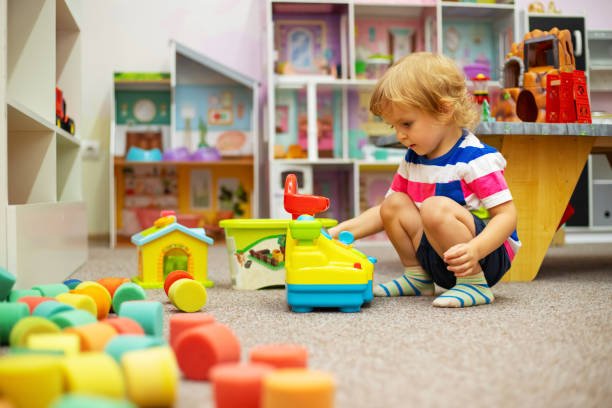Finding the best infant daycare near me requires careful consideration of safety, quality of care, and development-focused programs. Parents often seek options that offer trustworthy environments where infants receive attentive care and engage in age-appropriate activities. The best infant daycare combines licensed facilities, experienced caregivers, and nutrition plans tailored to infants’ needs.
Many daycare centers and home-based providers offer part-time and full-time programs designed specifically for infants aged 6 to 18 months. Facilities that emphasize early childhood development through structured schedules and a nurturing atmosphere tend to be the most reliable options.
Accessibility and clear communication also play important roles in selecting a daycare. Availability throughout the week and flexible hours can help families find a service that fits their daily routines, making the search for the ideal infant daycare both practical and manageable.
Top Considerations When Searching for the Best Infant Daycare Near Me
Choosing the right daycare involves evaluating critical factors related to safety, caregiver qualifications, and the specific care program. Each of these areas directly impacts the quality of care and the child’s well-being.
Safety and Accreditation Standards
Safety is the highest priority when selecting an infant daycare. The facility should hold accreditations from recognized organizations, such as the National Association for the Education of Young Children (NAEYC). These accreditations confirm adherence to established health and safety guidelines.
Parents should ensure the center has secure premises, including controlled access and child-proofed spaces. Emergency policies and staff training in first aid and CPR must be in place. Regular inspections and low staff-to-infant ratios also contribute to a safer environment.
Transparency in safety protocols and open communication with parents are signs of a trustworthy daycare.
Qualified Caregivers and Staff Training
Caregivers must have specialized training in infant development and certified childcare qualifications. Look for staff with credentials such as Child Development Associate (CDA) or equivalent certifications.
Ongoing professional development is essential for keeping staff up-to-date on best practices. Caregivers should demonstrate warmth, patience, and responsiveness to infants’ needs.
Staff turnover rates provide insight into the daycare’s stability and care consistency. Low turnover generally indicates a supportive work environment that benefits the children.
Infant Care Programs and Curriculum
Effective infant daycare programs promote developmental milestones through age-appropriate activities. Curriculum should include sensory stimulation, motor skills development, and social interaction.
Parents should inquire about routines for feeding, naps, and diaper changes, ensuring they align with their child’s needs. Individualized care plans help accommodate specific schedules and preferences.
Educational approaches tailored to infants emphasize nurturing and responsive care rather than structured academics. Look for programs that balance safety, stimulation, and emotional support.
How to Choose the Best Infant Daycare in Your Area
Choosing an infant daycare requires careful attention to key factors like the cleanliness and safety of the facility, feedback from other parents, and the daycare’s accessibility. These elements help ensure a nurturing and convenient environment for both baby and family.
Evaluating Facilities and Hygiene
The physical space of a daycare should be clean, safe, and well-maintained. Floors, toys, and eating areas must be sanitized regularly to reduce illness risk. Adequate ventilation and natural light also contribute to a healthy setting.
Check infant-specific features such as small furniture, safe play areas, and secure sleeping spaces. The facility should follow health guidelines, including proper diapering stations and handwashing protocols. Safety measures like childproof locks and monitored entrances are essential.
A good daycare maintains clear policies on illness and cleanliness. Observing these practices during a tour provides insight into daily operations and staff diligence.
Parent Reviews and Testimonials
Parent feedback reflects real experience with the daycare’s quality of care. Reviews can reveal strengths and weaknesses that may not be evident during visits.
Look for consistent praise about caregiver attentiveness, communication, and responsiveness. Negative comments about lack of transparency or poor hygiene should raise concerns.
Seek testimonials that mention how the center handles emergencies, supports developmental milestones, and treats children emotionally. Online forums, local parenting groups, and direct conversations can provide trustworthy information.
Convenience and Location
Daycare proximity impacts daily logistics and routine. Selecting a center close to home or work reduces commute times and stress.
Consider transportation options, parking availability, and consistent accessibility. Some parents prioritize daycares near schools or relatives for added flexibility.
The daycare’s hours must align with the family’s schedule. Availability of extended care or emergency backup days can be decisive when choosing among options.
Balancing convenience with quality is necessary to ensure sustainable infant care.

